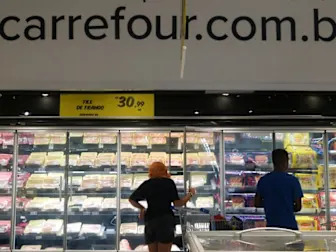By Gabriel Burin
BUENOS AIRES (Reuters) - Brazil's economy is projected to have resumed last year's strong run in the first quarter of 2025 thanks to rising household spending and higher private investment, a Reuters poll found.
Economic growth slowed to just 0.2% in the last three months of 2024 compared to the previous quarter, following a solid performance throughout most of last year.
But gross domestic product (GDP) data scheduled for release on Friday will likely show a reacceleration at the start of 2025, with a pickup in personal outlays on a vigorous job market as well as government policies to loosen credit conditions.
Latin America's No.1 economy expanded 1.4% in the January-March period over the fourth quarter, according to the median estimate of 19 analysts polled May 21-26. On the year, the economy grew 3.2%, according to the consensus forecast.
"The resilience of the labor market and the government's incentive measures during the period continued to drive greater consumption," Kinitro Capital economists wrote in a report.
Payroll-deductible loan issuance to private-sector workers rose sharply in March after new rules introduced by the government compensated the negative impact of steep interest rates on credit.
Kinitro also noted a good contribution of capital expenditure in the first three months. On the contrary, the external sector would have subtracted from GDP as imports increased quicker than exports.
On the supply side, the expansion was led by a bumper crop, particularly of soybeans sold to China, which sources around 70% of its imports of the oilseed from Brazil.
Industrial production and services activities also played a part, even with those sectors undershooting some estimates in the quarter.
This has been attributed to Brazil's elevated benchmark interest rate, which is now at a near two-decade record, as the central bank has been tightening policy to bring inflation under control.
The hawkish stance is expected to further affect GDP growth in the second half of the year, the government acknowledged earlier this month, despite lifting its full 2025 forecast to 2.4% from 2.3%.
Barclays, which expects a lower expansion of 2.1% for the whole 2025, mentioned in a report a more-challenging global environment and the deterioration in domestic financial conditions as downside risks.
But these "may be outweighed by a tight labor market and various government initiatives that should support domestic demand."
Apart from the recent rollout of new payroll-backed loans it cited workers' severance fund withdrawals in March and June and a beefed-up housing program supported by state bank Caixa.
(Reporting and polling by Gabriel Burin; Editing by Jonathan Cable, Ross Finley and Ros Russell)


